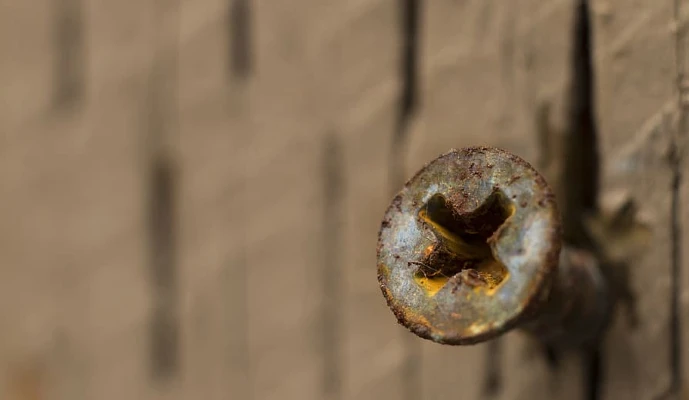
Galling is a phenomenon that occurs in fasteners due to a combined effect of friction and adhesion of metallic surfaces during the process of sliding. As a result of galling, material from one surface gets attached to another, forming a lump, and in turn, the build of excess lumps may cause further galling.
Thread surfaces come with negligibly small points that create friction at the time of fastening, making it difficult for them to slide over each other without causing overall damage.
The ductility of material is a crucial factor in determining its tendency to gall. It is preferable to use harder materials in order to avoid the occurrence of galling, as they are generally more resistant.
Galling of Threads
Thread galling takes place at the time of installation. Bolt threads tend to get affected due to excess pressure and friction, seizing to threads of a trapped hole, in a phenomenon that has come to be known as ‘cold welding’. Once galling occurs, it is not possible to reverse the damage without splitting the nut or cutting the bolt would be the only solutions to move forward.
What Kinds of Bolts are Susceptible to Galling?
Stainless steel, aluminium, variations of steel, and titanium, are more prone than other materials to galling. Avoid fasteners that use threads which are damaged, or ones which use fine threading, to minimise the possibility of galling. Zinc-plated hardened steel bolts are an ideal choice for such applications.
Measures to Avoid Galling
Slow down the installation process
The heat caused by friction and adhesion is the primary contributor to galling; hence, slowing down the speed of installation can help you prevent it from occurring. Avoid the excess use of power tools for installing stainless steel and materials that are not immune to galling.
Avoid bolts to bring joints together
The function of bolts does not include pulling together materials into position. When you use bolts for doing so, there is a higher possibility of galling to occur. The materials should be placed in such a way that the nut can simply be enforced for the complete tightening process, with the addition of clamps to hold the joint together if necessary.
Apply a lubricant
The possibility of galling can be minimised by the use of lubricants that help you combat galling. They reduce friction and allow a smoother process of sliding.
Do not use damaged, dented, or dirty threads
Damaged threads are a problem to watch out for, especially in the case of fine-threaded bolts. A standard nut should be able to work with a bolt when applied by hand; if this does not work, it is likely that the threads are dirty or dented.
Stop immediately if a fastener starts to bind
If a fastener binds before you begin tightening it down, it would serve you well to stop right away, give it a minute or two for excess heat to leave. It helps to check the threads thoroughly to detect if any damage has occured.




